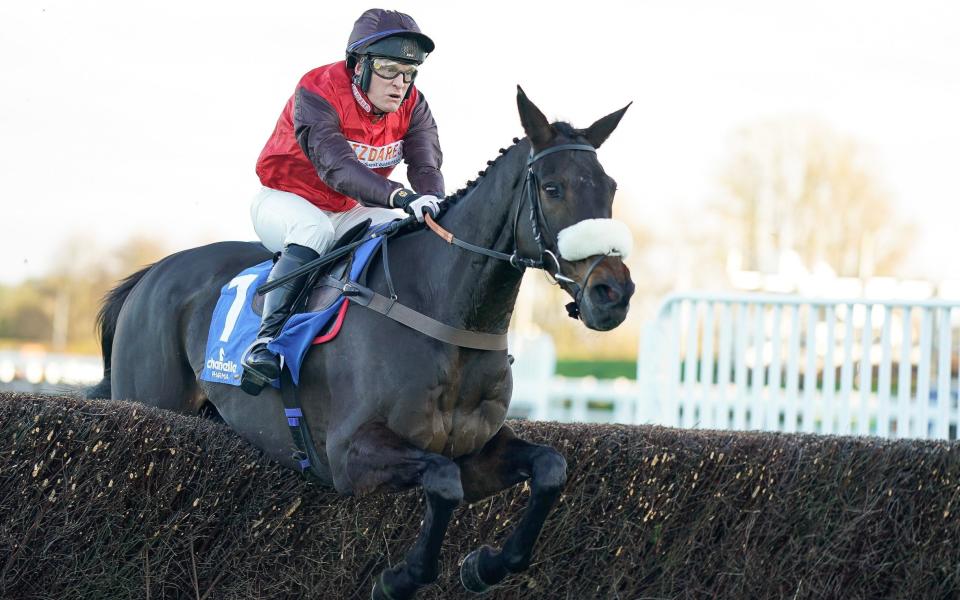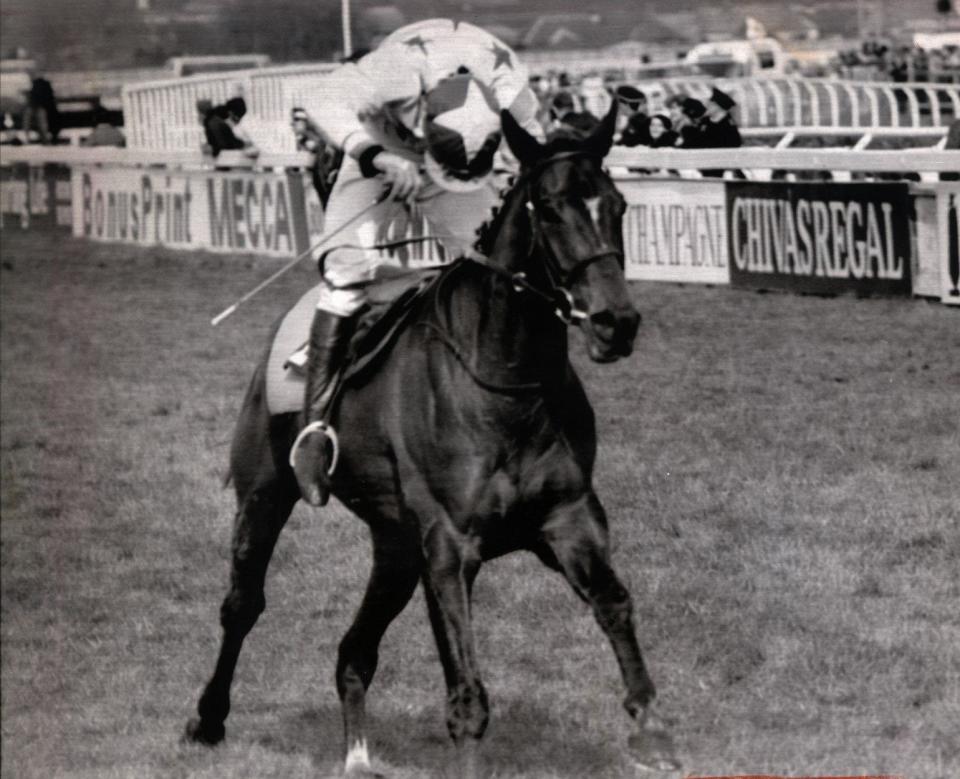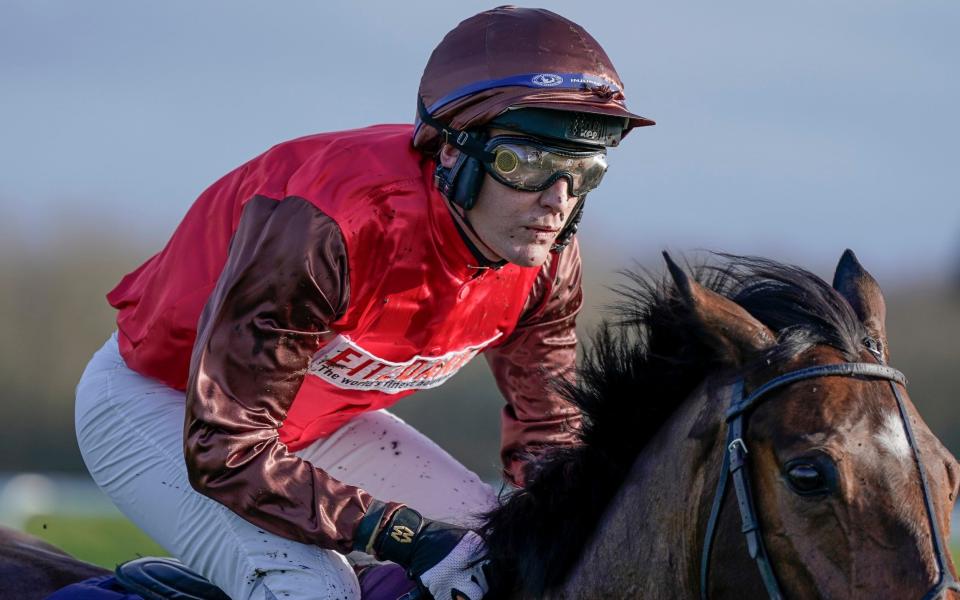A raft of welfare changes debut in Saturday’s Grand National, netting a 21st century appearance, but there is one theme in the 176th edition that is as old as the race itself; the owner-driver.
When David Maxwell goes to post on Ain’t That A Shame, the horse he bought for the race, at 45 he will be old enough to be the father of some of his fellow riders, but he won’t break any age records break. The oldest winner was 48-year-old Dick Saunders on Grittar in 1982; the oldest participant to participate, the colorful 68-year-old Tim Durant in 1968. “I’m too young for this race,” he jokes.
Outwardly it may appear that Maxwell was chauffeured from the city to Aintree, but it goes much deeper than that; Steeped in racing, his family grew up in a garden in Northern Ireland, where his father was a successful small-time trainer and deck owner. His sex education was, he says (probably not kidding), watching stallions cover mares.


But in February 1983, his mother, Judy, became the center of one of the greatest racing mysteries of the 20th century: Shergar’s kidnapping. Although he was only four at the time, Maxwell still remembers it like it was yesterday.
“When Shergar was kidnapped, the kidnappers called my mother in the middle of the night to demand ransom,” he recalls. “There was no connection other than that my parents trained, had a few stallions of their own and it was Northern Ireland.
“Every time I see Derek Thompson he reminds me of that. The kidnappers only talked to mum and the media, the racing press and Derek Thompson came to Downpatrick.
“Your memory as a child may be distorted, but it felt like you were standing alone on the lawn. It was the story of the day, but isn’t it funny, people’s affection for horses? I think probably three thousand people died during the Troubles, and for many the story that stood out was the kidnapping and shooting of a horse.”
His family initially bred and trained the 1988 national winner, Rhyme N Reason. “The memory of him is as fresh as paint,” he recalls. “My mother rode him and I sat on my pony. We stood up his father Kemal and he won a few bumpers for dad. Juliet Reed and John Moreton bought him early in his career to go to Britain.
“He almost fell from Becher the first time, broke a few bones in his hock, came into action last, came back into the race, was at the front at the last, headed but Rhyme N Reason was a good tie and won with four lengths difference.”


At the age of 16, Maxwell was sent to school in Dorset before going to Cambridge to study economics. There he chased the resistance, riding out for point-to-point trainer Henry Hill, breaking his jaw in six places on a Sunday morning at the Links school grounds in Newmarket.
‘I had been on quite a high income in Cambridge and couldn’t afford to get a job in London, so I foolishly set out on my own in property investment, looking for ways to finance development, although it turned out well . ”
Now that he had the means to do so, he was pulled back in by the horses. Initially, in his late twenties, he had a few tips with Richard Pitman. “Then the obsession with middle-aged men went from two to ten points in my thirties,” he explains. “What I’m actually doing is having fun with the whining and I now have about twenty horses, divided between trainers.
“The turning point came six or seven years ago when I hired Dave Crosse as my jockey coach. He taught me how to race. I went from incompetent to competent and at that point he said ‘I can make you an amateur champion’, which he did in 2018/19 and 2019/20. It wasn’t so much a box checked, but more ‘that’s nice to show something from the last fifteen years, a certain level of performance.’
“Since then, to be honest, it’s all been about the love for the horses. They’re just such sweet characters. All different, but all characters.”


“Last year in January at Cheltenham I broke back for the fourth time in a competitive handicap chase on Saturday. It was 14 up from the first, I fell off and made the decision not to race in competitive Saturday handicaps anymore. I’ve congratulated myself on sticking to it, but hang on, the Grand National is the ultimate competitive Saturday handicap. Will they wisely go to the first? Like hell.
“The thing about National now is that it is a really high class handicap, not the crazy racing it used to be. That’s why you now get a 4-1 favorite. Go back to the 1990s and the favorite was 10-1, reflecting the odds of getting around it.
His fellow riders, he emphasizes, are much more accepting of him in their ranks than the people on Twitter. “For me, the idea is to do it because I enjoy it,” he emphasizes. “If I’m not safe, the jockeys will tell me they get very angry very quickly, but as long as you’re safe, they will completely accept anyone who wants to try.
“It is a privilege as a middle-aged athlete to be in the vicinity of real top athletes. You’re not one of them because you’re not that good, but to be able to sit among them and hear the banter is great. They are nice characters. They are young boys and girls who are at the peak of their careers.
“I forget how young they are, they’re in their mid-twenties, I’m in my mid-forties. It is an enormous privilege to be able to sit on an equal footing with the young people, not as their boss, but as a contemporary. I don’t get the chance to do that anywhere else in my life.”
On the wall of his office hangs a print of a photo finish from Punchestown 2020, when he beat Patrick Mullins by an inch in a championship chase. “In an interview after the race I said, ‘Some days you’re the dog, other days you’re the lamppost, but today was a dog day,’” he explains.
“A week later an envelope arrived with the print on it Patrick had written ‘to the dog, well done from the lamp post.’ It’s next to a framed tweet that the guys in the office framed for me. It reads: ‘When will David Maxwell get a decent jockey to ride his horses?’ The answer now is the same as then: never!”
He once wrote to the Today program asking why they never tipped his horses, despite being one of the few jockeys who liked to listen. “The next day I waited hoping I would be one of the tips,” he says. “But Russia invaded Ukraine and I don’t think there was even a tip-off that day!
“When I bought Ain’t That A Shame he was 33-1, now he’s 66-1. Obviously it would be better if he was ridden by Rachael Blackmore, but the information is all out there and they can trade him however they want. But if you compete in the National, you can win the National.”